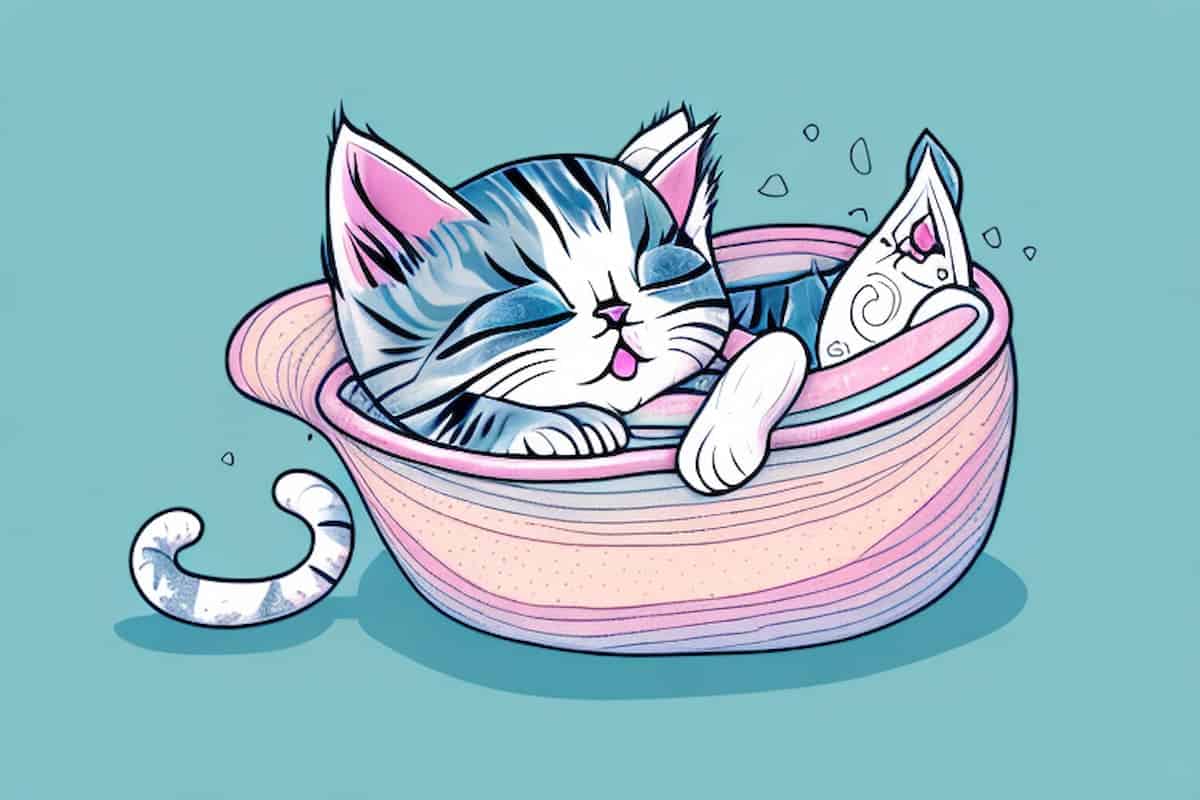Kittens are small, furry bundles of energy – so why do they sleep so much? Kittens can sleep upwards of 20 hours a day, and may even sleep much longer depending on their age and activity level. This intense sleeping habit has been puzzling cat owners for decades, with some believing it to be nothing more than an affectionate way for cats to bond with their owners, while others believing it may be a biological and evolutionary response.
What Age Do Kittens Start Sleeping More?
Kittens start sleeping more around 4 weeks old, when they reach their so-called “peak sleep” period. This is because their bodies and minds are still in the process of maturing. During this period, kittens may sleep for up to 20 hours a day. This is normal and is necessary for a kitten’s proper growth and development. As cats get older and reach adulthood (around 6 months old), they become less dependent on sleep and may only need to rest for 12-14 hours a day.
It is important to note that kittens may still need more sleep than adult cats, even after they reach adulthood. This is because kittens are still growing and developing, and their bodies need more rest to support this process. Additionally, kittens may need more sleep if they are feeling stressed or anxious, or if they are recovering from an illness or injury. It is important to provide your kitten with a comfortable and safe sleeping environment to ensure they get the rest they need.
How Much Sleep Do Kittens Need?
The amount of sleep that kittens need depends on their age, activity level, and emotional state. Generally, kittens should get at least 12-18 hours of sleep per day until they reach 6 months old. After that, the amount of sleep they need will depend on their individual activity level. For instance, if a cat is especially energetic and playful, they may need more sleep than one who is more sedentary and relaxed.
What Is a Normal Kitten Sleep Schedule?
A normal kitten sleep schedule looks something like this: sleep for 3-4 hours during the day, take a 2-3 hour nap in the late afternoon, sleep for 3-4 hours at night, then spend the remaining hours of the day being active, exploring, playing with toys, cuddling with humans, etc. This schedule helps kittens to stay alert and energized during playtime and ensure that they grow up healthy and strong.
What Are the Benefits of Kitten Sleep?
Not only is getting enough sleep important for a kitten’s health and growth, but it also helps keep them emotionally healthy and well-adjusted. During sleep, cats release calming pheromones that help them to relax and de-stress after a long day of playing. This helps them to become better adjusted to their new environments and feel more secure in their surroundings. For this reason, it’s important that cat owners give their kitties plenty of places to rest and sleep throughout the day.
Do Kittens Have Different Sleep Patterns Than Adult Cats?
Yes, kittens have different sleep patterns than adult cats. Adult cats typically have a much more regulated sleeping schedule—they will sleep an average of 12 to 16 hours throughout the day—whereas kittens are much more free-spirited in their sleep schedules. They may sleep for several hours at a time during the day, or take short naps between active periods of play. It takes time for kittens to adjust to a more regular sleeping schedule.
Are Kittens More Prone to Sleeping Disorders?
While kittens may have different sleep patterns than adults cats, they’re generally not more prone to sleeping disorders. However, it’s important for cat owners to pay attention to their kitten’s sleeping habits in order to look out for any potential signs of sleep disturbances, such as difficulty staying asleep or excessive sleeping during the day.
Tips for Ensuring Your Kitten Gets Enough Sleep
To make sure that your kitten gets enough rest each day, follow these tips:
- Ensure that your kitten has a comfortable bed or sleeping area.
- Play with your kitten during the day so that they’re emotionally content and less likely to stay awake late into the night.
- Provide plenty of opportunities for your kitten to explore and have fun throughout the day (e.g., toys, cat tree climbs).
- Keep your kitten away from too much noise or stimulation late into the night.
- Provide them with good nutrition, especially in their later stages of development.
How to Know If Your Kitten Is Not Getting Enough Sleep
If your kitten isn’t getting enough rest, there are several signs you should look out for:
- Frequent signs of fatigue throughout the day.
- Irritability or crankiness during playtime.
- Uncontrollable yawning.
- Refusal or inability to settle into a sleep routine by bedtime.
- Inability to play or explore during the day.
- Excessive meowing during the night.
If you notice any of these signs in your kitten, be sure to take extra steps to ensure that they get the amount of rest they need in order to stay healthy and happy!





